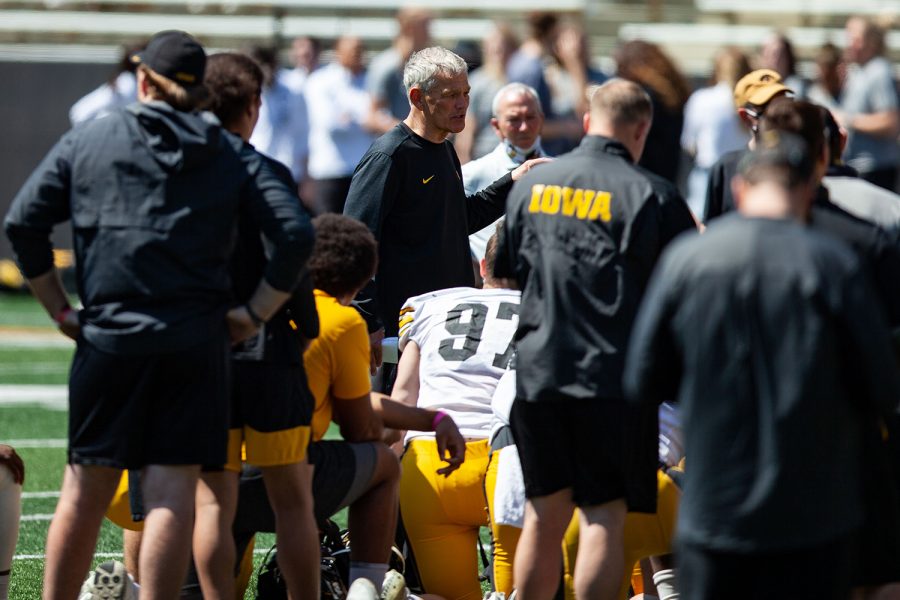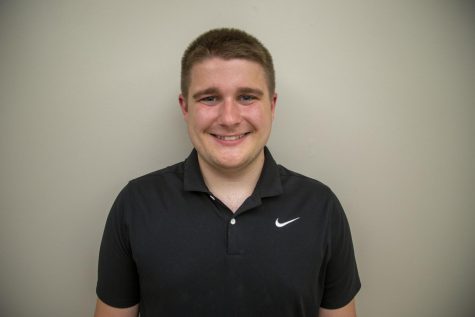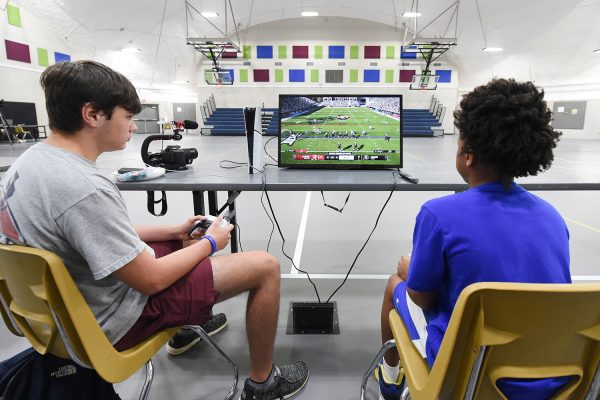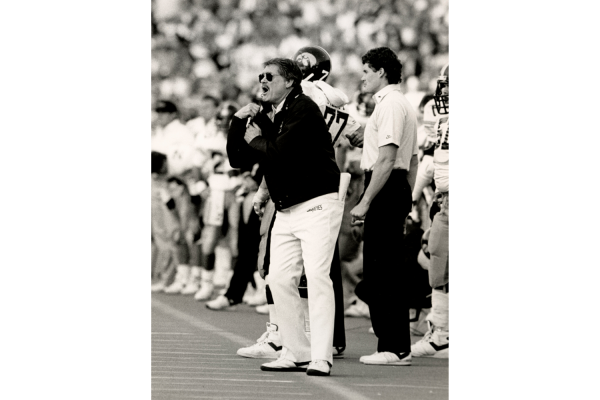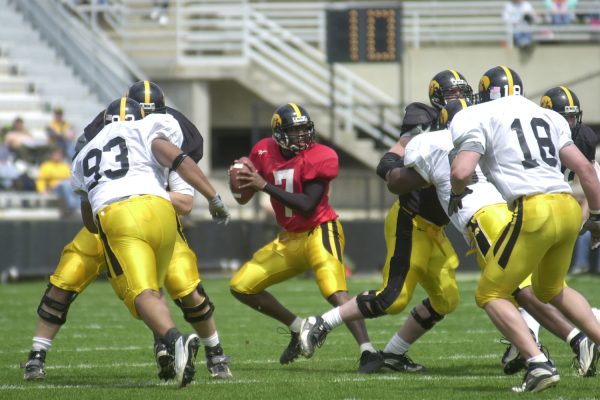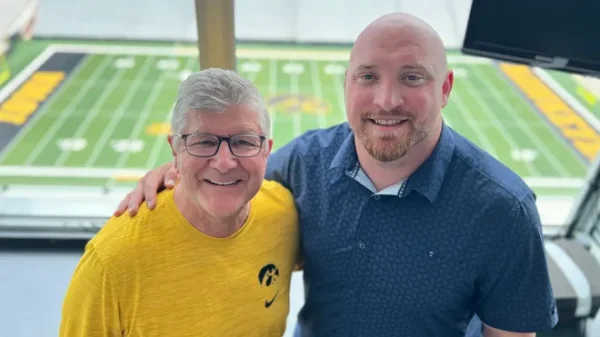Inevitable NIL legislation a positive for college football, Kirk Ferentz says
Iowa’s head coach and the dean of college football isn’t quite sure how name, image, and likeness will impact the sport, but he knows he will be finding out soon.
Iowa head coach Kirk Ferentz talks to players after a spring practice at Kinnick Stadium on Saturday, May 1, 2021.
June 22, 2021
Not even the University of Iowa’s Kirk Ferentz, the longest-tenured head coach in college football, is quite sure how potential name, image, and likeness legislation will impact the landscape of the sport. But he may be finding out soon.
The U.S. Supreme Court on Monday unanimously ruled against the NCAA’s limitations on athlete compensation for educational benefits. The decision is not directly linked to NIL, but clears the way for the NCAA to adopt NIL legislation, perhaps as soon as July 1.
“I don’t know what it’s going to mean for anybody in college football,” Ferentz said during a press conference on Tuesday. “I think most of us are going to be learning as we go.”
The 9-0 ruling in NCAA v. Alston is expected to bolster athletes’ rights, compensating them beyond the cost of attending college through allowing athletic departments to offer internships, scholarships for graduate school, computer equipment, study-abroad programs, and up to $5,980 in education benefits, unless conference rules state otherwise.
In a concurring opinion after Monday’s ruling, Justice Brett Kavanaugh mentioned that the NCAA is not “above the law.”
“Nowhere else in America can businesses get away with agreeing to not pay their workers a fair market rate on their theory that their product is defined by not paying their workers a fair market rate,” Kavanaugh wrote.
The NCAA Council was waiting for the ruling to determine how it would move forward with NIL legislation. The NCAA has until July to implement a nationwide NIL framework before state-specific NIL laws take effect.
To date, 19 states have officially passed specific laws giving athletes NIL rights and seven of them are set to take effect in July.
The NIL bill in the Iowa Legislature died this spring.
Ferentz said Tuesday there is ambiguity surrounding NIL and college football, as well as what the timeline will look like in that regard.
He mentioned challenges the legislation could create, such as making time management more difficult for some athletes who may be caught up in sorting out endorsements while in school.
RELATED: Iowa football notebook: 12-team CFP expansion, Tracy’s expanded role, Parker to make state history
But the Hawkeye coach, entering his 23rd year leading the program, mentioned NIL legislation being passed is inevitable, and said he thought it’d be a “positive” for the sport and its athletes even if there are specifics to figure out.
When it is passed, Iowa wide receiver Tyrone Tracy Jr., a redshirt sophomore, has some ideas as to how he could take advantage of the new freedom.
From hosting autograph sessions to running football camps for children in the area, Tracy said he and other college athletes around the country have wide-ranging opportunities to profit off themselves.
Tracy, while staying focused on his responsibilities on the gridiron, is vocal in his support of athletes profiting off of their name, image, and likeness.
“In college, for a lot of people, their names are bigger than when they’re out of college,” Tracy said on Tuesday. “If you can make money right now, you should be able to. Because the next step when you’re out of college, you don’t know what’s going to happen.”
Tracy joins men’s basketball player Jordan Bohannon and women’s basketball player Caitlin Clark (both of whom met with NCAA President Mark Emmert in April to discuss NIL) as notable Hawkeyes athletes to voice their thoughts on the topic.
A counterargument for compensating college athletes is that doing so would dilute the product and in effect diminish amateurism altogether.
But Tracy believes athletes should have the opportunity to cash in on the value of the product they help create.
“You already know there are a lot of people profiting off of your play,” Tracy said. “You know that you’re not going to get any of it. That’s why I think [NIL] is so huge… There’s people on every team that could earn something from this.
“I feel like every year there are people who go by who lose out on that opportunity. This is literally a once-in-a-lifetime opportunity for a lot of people. A lot of people don’t come from a lot of money back home. This money could help their family back home. Some people don’t understand that. If this does get passed, there’d be more smiles than frowns.”



